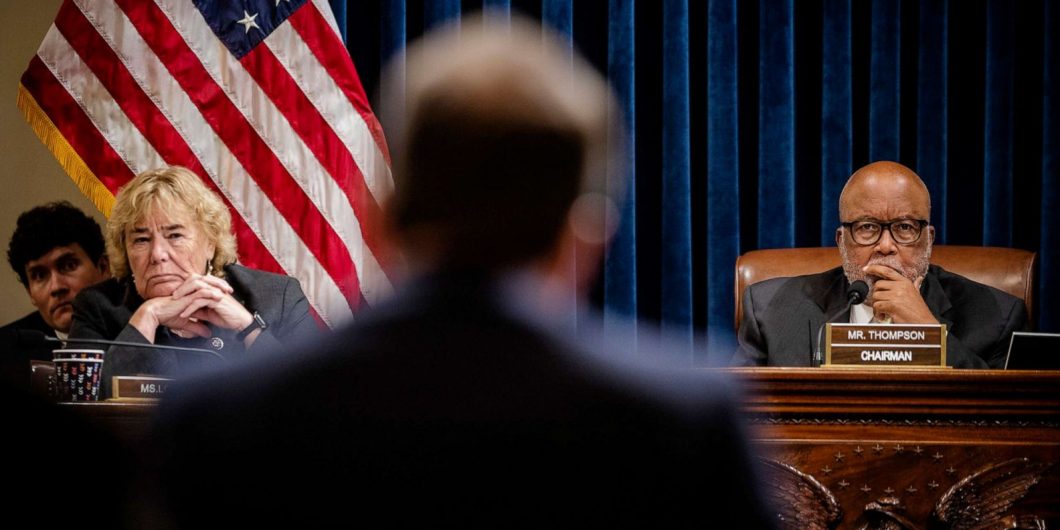Can the January 6 Investigation Serve Congress as an Institution?
Traditionally it has never been questioned, either in doctrine or practice, that the legislature possesses the power, as it was put in early years, ‘to inquire into the honesty and efficiency of the executive branch.’ Under the American system it is this that is the heart of the investigatory power. … [I]f it lost the power to investigate the executive, Congress would retain only the name of legislature.
So wrote James Burnham in his great reflection on America’s constitutional system, Congress and the American Tradition. The National Review editor was aghast at the multiplying claims of executive privilege of his era, the late 1950s, and he hoped that conservatives might rally against them. When he wrote, he took it for granted that conservatives were generally defenders of the legislature’s constitutional prerogatives and standing, and liberals were generally its detractors. He conceded that these orientations might change in some future political environment then unforeseeable to him.
As it has turned out, ideologues of all stripes have generally forsaken Congress in favor of the executive branch in the years since Burnham wrote. With even greater consistency, both political parties have taken stands on behalf of broadening and deepening executive privilege.
Should those of us who think like Burnham circa 1959, then, look kindly upon the current efforts of the House Select Committee to Investigate the January 6th Attack on the U.S. Capitol? Recently, this committee (comprising seven Democrats and two anti-Trump Republicans) has been on the warpath against promiscuous claims of executive privilege. And it finds itself in the remarkable position of having the president and Department of Justice on its side, such that those members of the previous administration who defy its wishes now find themselves at serious risk of criminal prosecution. One such individual, Steve Bannon, who completely refused to cooperate with the committee, is already under indictment and will stand trial for contempt in July. Congress has a chance to demonstrate its Constitutional might and strike fear into the hearts of those who would defy its will to find the truth.
Of course, not everyone sees things that way. The executive branch’s omerta may indeed be showing cracks, but that just shows the ascendancy of partisan advantage seeking in this political moment. Critics of the Select Committee have dismissed its efforts as simple gamesmanship, a Democratic attempt to embarrass some Republicans ahead of the midterm elections in 2022.
There is little question that the Select Committee is a partisan endeavor—it was basically guaranteed to be from the outset, given that it was the body created by House Democrats after an attempt to agree to a bipartisan commission fell apart. And yet the accusation of partisanship is not the knock-down argument that some people think. Separation of powers conflicts are often fueled by one party’s desire for electoral advantage, but this can be one way in which “ambition counteracting ambition” keeps our Constitutional branches in balance. If the worst that the Select Committee’s critics can say about it is that it hopes to embarrass some Republicans, that would amount to praising it with faint damns.
The critics raise a more serious point when they take a different tack and ask: What is it that this Select Committee is actually trying to do? What is their investigation supposed to reveal about the January 6th attack on the Capitol that we do not already know from the Capitol Police Inspector General’s report, the joint report from the Senate Homeland Security and Rules Committees, the majority and minority reports from the Senate Judiciary Committee, and the voluminous coverage of the events of that day by investigative journalists?
Indeed, perhaps the most important question of all is what any of these investigations is going to be able to add to the most decisive record of all: the Twitter feed of @realDonaldTrump, now officially defunct but preserved for posterity for anyone who cares to look. More specifically, the eighth-to-last tweet issued from that account, at 2:24 PM on January 6, 2021, some 90 minutes after the first Capitol security guards gave way, and soon after Senators fled their chamber and the House interrupted its proceedings because of the mounting dangers from rioters in the building. It read: “Mike Pence didn’t have the courage to do what should have been done to protect our Country and our Constitution, giving States a chance to certify a corrected set of facts, not the fraudulent or inaccurate ones which they were asked to previously certify. USA demands the truth!”
That tweet, in the context of what was happening at that time (and what we are fairly certain Trump was observing on White House televisions), speaks volumes, and it is doubtful whether anything else uncovered by congressional investigators, or federal prosecutors, will ever match it.
Just because the Select Committee can press Congress’s institutional advantage does not mean that it would be wise to do so, or even that it would serve the immediate cause of helping frame the next election.
As the Select Committee decides just how many people it wants to refer for contempt, it would do well to consult Professor Josh Chafetz’s book, Congress’s Constitution (which I reviewed for Law & Liberty some years ago). Chafetz offers a magnificent history of Congress’s contempt power (building on an earlier law journal article), including a chronicle of the years in which the Capitol’s own jail was used to enforce the legislature’s will without any recourse to the executive branch or judiciary. There is no question that, as a matter of Constitutional powers, it is on good ground if it wants to steamroll any and all executive power claims. (The case is much less clear concerning members of Congress themselves, who assert their right to unobstructed speech and debate in the discharge of their duties, including confidential speech, as a reason to resist the committee’s entreaties.)
But the central message of Chafetz’s book is what the Select Committee needs to ponder. My review paraphrased, “A wise Congress seeks out interbranch conflict judiciously rather than indiscriminately.” There may be opportunities for the Select Committee and its allies in the Biden administration to win battles in court against Trump administration officials asserting executive privilege. And it may be possible to construe those as victories for Congress’s prerogatives. But the larger war is playing out in the court of public opinion. And it isn’t clear how the public—as opposed to just the Democrats’ core supporters—will take to seeing people thrown in jail simply because they failed to do everything the committee wished them to.
Particulars matter here. After the Select Committee recommended a criminal contempt citation for Bannon, the Biden Department of Justice delivered an indictment with remarkable speed. It has not done the same for Mark Meadows, Trump’s Chief of Staff at the time of the January 6th attack, who did offer the committee a considerable trove of documents before declining to fulfill some of their requests. Meadows’ claims of privilege are much more substantial than Bannon’s, and executive branch solidarity may yet win out.
What will the Select Committee gain by getting former Trump officials to sit in jail? For some, including Bannon, a jail sentence might well bolster their credibility with die-hard supporters of the former president. At the same time, the Committee risks coming off as simply intoxicated by its own powers.
If it is to avoid that fate as it seeks to get other witnesses to fully comply with its subpoenas, the Select Committee needs to make it very clear just what its investigation is supposed to be doing. There are hints that it may be hoping to frame a criminal indictment of Trump for “corruptly” obstructing or impeding an official proceeding. It is, frankly, rather difficult to imagine that coming off, in part because it is difficult to imagine what kind of smoking gun evidence the committee could unearth that tells us something that the 2:24 PM tweet did not tell us already.
There is a very strong case to be made that an impeachment proceeding should have been brought against Trump on January 7 and tried in the Senate by January 8 or 9, such that actual removal of the president from office would have been a live possibility. The articles could have been written quite broadly, to emphasize that the primary “high crime” being considered was a violation of the president’s oath to uphold the Constitution and take care that its laws be faithfully executed; the question of whether Trump intentionally fomented the attack on the Capitol could have been treated as a side issue not requiring definitive resolution. That was, almost certainly, the best opportunity to join the causes of partisan advantage-seeking and institutional interest, and we might well have gotten a week or so of President Mike Pence. That would have left an indelible lesson about the Constitutional balance of power in our history books.
Having missed that opportunity, getting Trump officials thrown in jail for not cooperating with the Select Committee and seeing whether Trump himself can be subjected to the criminal justice system for his conduct smacks of sour grapes. Just because the Select Committee can press Congress’s institutional advantage does not mean that it would be wise to do so, or even that it would serve the immediate cause of helping frame the next election.
The best way to acknowledge the ignominious anniversary of January 6 would be to reopen the Capitol to the public. Ordinary Americans have been excluded, officially as a pandemic precaution, since March 2020. They need to come in again. Getting our representative legislature to embrace its connections to our citizenry is the ultimate retort to those who would subvert our democratic processes.


